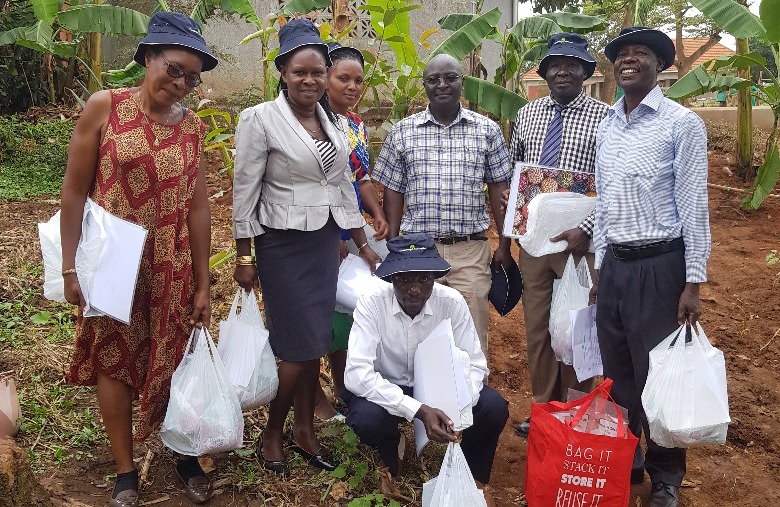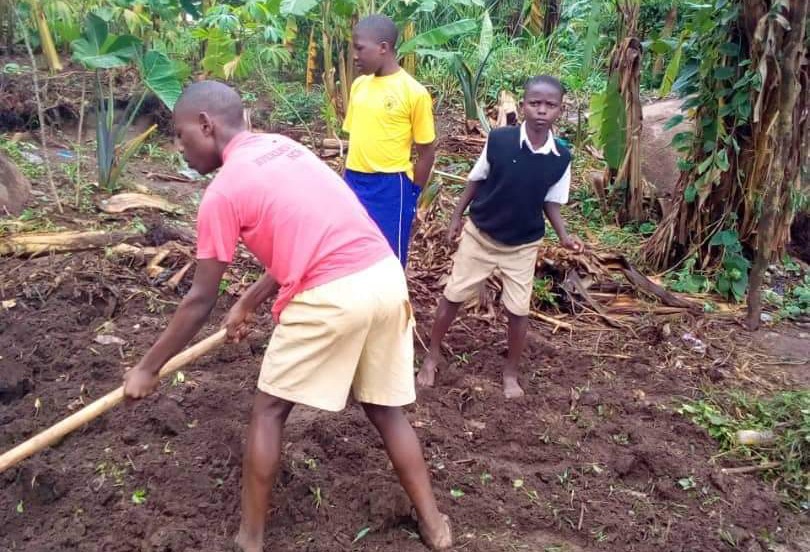

Soil fertility training in Uganda gains momentum
October 31, 2019
Earlier this year, David Collins, Greening Australia and Dr Innocent Muhereza, Canadian Cooperative Association (CCA), organised a fourth series of workshops and training in Uganda on the subject of improving soil fertility through effective nitrogen-fixing legume crop rotation. The training was made possible with assistance from the Crawford Fund’s WA committee and follows on from workshops in 2012, 2015, and 2017.
The training workshops, conducted since 2012 by Collins, Muhereza and their colleague Dr Deb Pritchard, have identified the major soil constraint to plant growth as low nitrogen status. Over 65% of soils tested showed deficient or low N levels.
Past training has focused primarily on appropriate rates and sources of nitrogen fertiliser and soil testing. The training conducted in 2019 aimed to:
- Increase the use of legumes in crop rotation to boost soil N status and create a disease break for following crops
- Improve yields of legumes using inoculation with rhizobia bacteria
- Demonstrate how to assess the health and effectiveness of rhizobia root nodules
- Promote the health benefits of inclusion of legumes in the diet
Seven local lead farmers were selected to undertake the training to enable them to run workshops in their own localities. Each trainer was supplied with seed, inoculant (supplied by Murdoch University) and teaching material to conduct two workshops independently. Each workshop involved 20 – 30 participants providing training to over 300 small landholders and students in total.

The use of legumes in crop rotation in Uganda has declined over recent years with preference given to staple cash crops, such as maize, to feed the increasing peri-urban population. The training aimed to demonstrate higher yields are possible if seed is inoculated providing more legumes for family consumption as well as seed for cash sales.
David Collins was enthusiastic about the outcomes and said, “The trainings to date have established strong links with leading community figures in the rural community and education facilitators at Mackerere University, Ethiopian Institute for Ag Research and NGO’s such as the Ugandan Cooperative Alliance in Kampala. These links can be further developed for future student exchange of ideas, study and research projects.”





